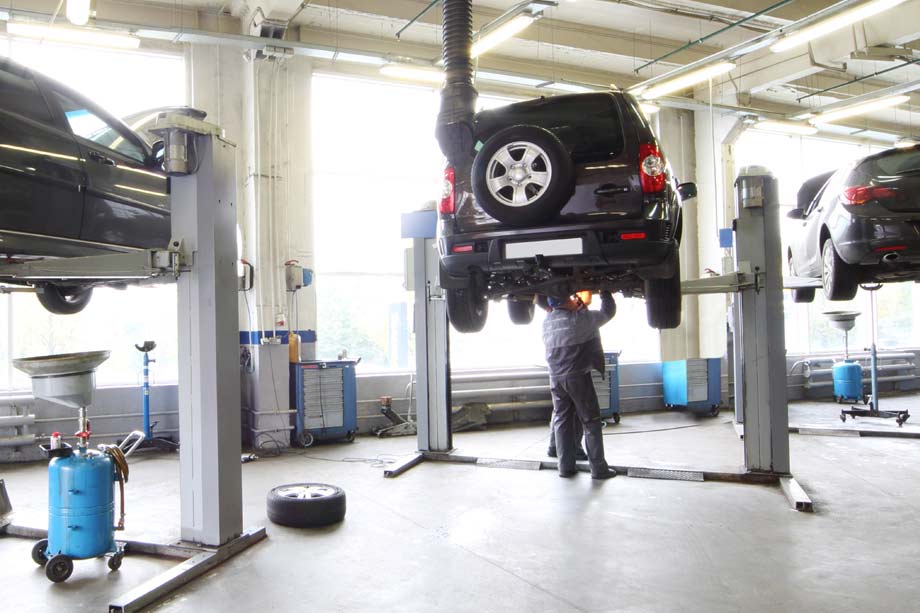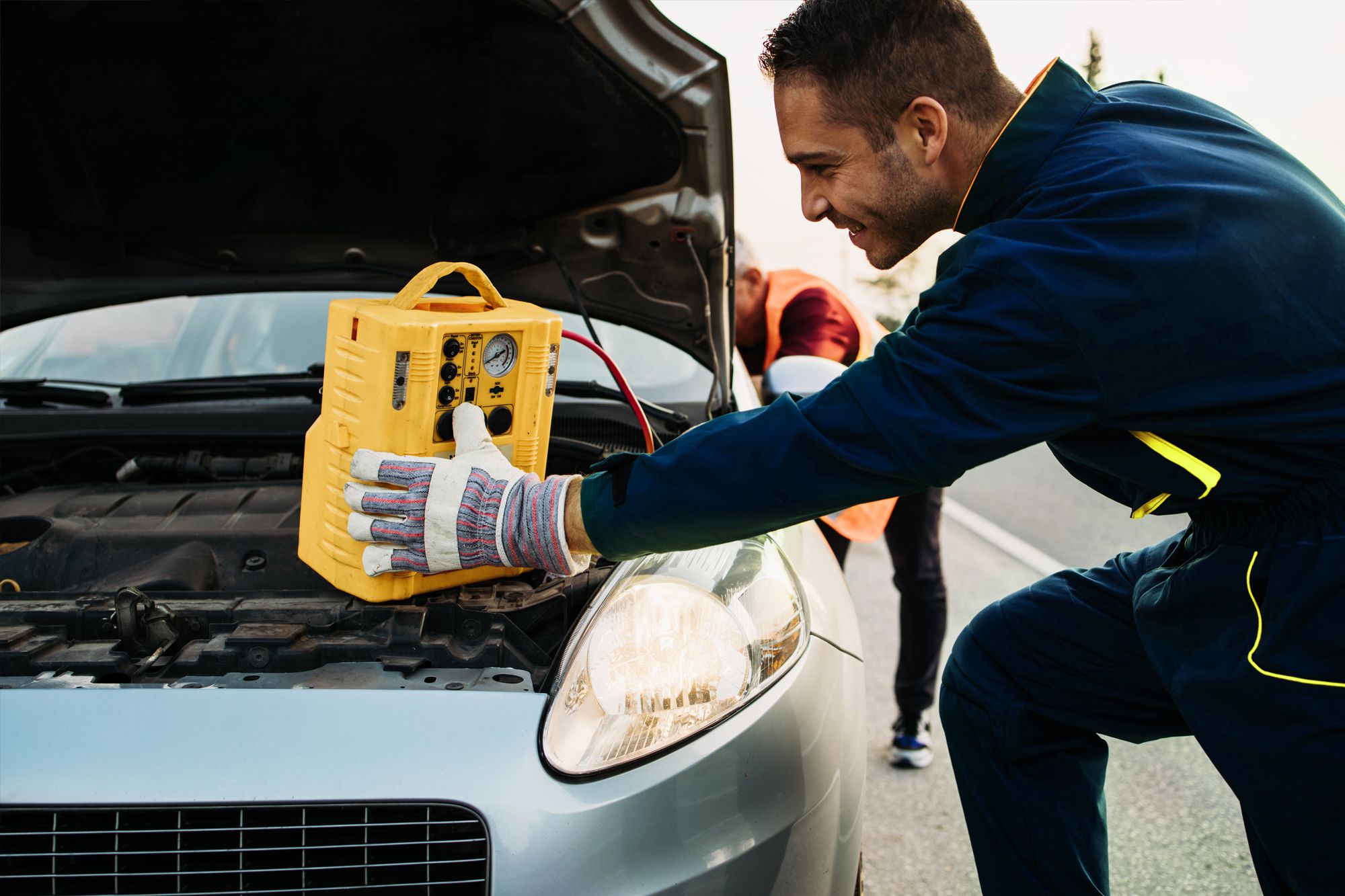All Categories
Featured
Brakes are among the most crucial safety and security components of any type of automobile, ensuring you can reduce down or stop swiftly when needed. In time, brake components can put on down, resulting in reduced performance and possibly harmful driving problems. Understanding the indicators that your automobile requires brake repair service is necessary for maintaining both security and the longevity of your automobile. In this blog, we'll go over the common indicators that suggest your brakes require attention and just how to attend to the concern quickly.
![]()
Exactly How to Address It: If you see squeaking or squealing, have your brake pads changed and checked if necessary. Addressing this concern quickly will prevent further damage to various other brake parts, such as the rotors.
How to Address It: If you listen to grinding sounds, stop utilizing the vehicle and have the brakes checked instantly. It's important to replace the brake pads immediately and inspect the rotors for damage.
Exactly How to Resolve It: If your brake pedal shakes, have the rotors examined for bending. Sometimes, they can be resurfaced, but if the damage is serious, you might need to replace the blades.
How to Address It: If you experience a spongy or soft brake pedal, examine the brake fluid degrees. It may need to be covered off if the liquid is reduced. Nonetheless, if the issue persists, you should have the brake system evaluated for leaks or air in the brake lines.
![]()
Just How to Resolve It: Pulling away requires immediate interest from a mechanic. The issue can be triggered by a number of elements, including a stuck caliper or unequal brake pad wear, all of which require to be identified and repaired by a professional.
How to Address It: If the brake caution light shows up, refer to your car's handbook to recognize the particular problem. It's constantly suggested to take your car to an auto mechanic to have the brake system checked and any kind of essential repair work made.
![]()
Just How to Resolve It: Any decrease in braking efficiency needs to be attended to right away. Have your brakes examined to determine the reason, whether it is because of used pads, fluid issues, or other concerns within the braking system.
Final thought. Brakes are a crucial safety and security feature that need to never ever be overlooked. It's crucial to address the problem as quickly as possible to stop further damages and guarantee your car is risk-free to drive if you notice any of the above indications. Routine brake upkeep and assessments can aid you prevent costly repairs and prolong the life expectancy of your braking elements. Don't wait on your brakes to stop working-- if you discover any one of these signs, schedule a brake inspection with a relied on auto mechanic immediately.
- Squeaking or Screeching Noises. When braking, one of the most common indicators that your brakes need focus is uncommon noises. A high-pitched squeaking or screeching audio typically indicates that the brake pads are used down and need to be replaced. Modern brake pads are outfitted with wear indications that make sound when they are no more reliable, notifying you that it's time for an adjustment. If you neglect these audios for also long, the metal of the brake pad may start to call the rotor, triggering additional damages.

Exactly How to Address It: If you see squeaking or squealing, have your brake pads changed and checked if necessary. Addressing this concern quickly will prevent further damage to various other brake parts, such as the rotors.
- Grinding Noises. It is an extra major concern if you listen to a grinding noise when using the brakes. This sound usually takes place when the brake pads have put on down completely and the steel component of the pad is grinding versus the rotor. Grinding can damage the rotor, which is pricey to repair or change.
How to Address It: If you listen to grinding sounds, stop utilizing the vehicle and have the brakes checked instantly. It's important to replace the brake pads immediately and inspect the rotors for damage.
- Shaking Brake Pedal. If the brake pedal vibrates or pulses when you use stress, it might be an indication that the brake rotors are deformed. Warped blades can cause uneven pressure to be used to the brake pads, leading to a unstable or bumpy stopping experience. This problem can aggravate in time, making it tougher to quit your lorry efficiently.
Exactly How to Resolve It: If your brake pedal shakes, have the rotors examined for bending. Sometimes, they can be resurfaced, but if the damage is serious, you might need to replace the blades.
- Soft or Squishy Brake Pedal. When you press the brake pedal, it should feel receptive and firm. If the pedal really feels soft, spongy, or sinks to the floor, it's an indicator that there might be a problem with the brake fluid or the brake system itself. This can be brought on by reduced brake liquid degrees, air in the brake lines, or a brake fluid leak.
How to Address It: If you experience a spongy or soft brake pedal, examine the brake fluid degrees. It may need to be covered off if the liquid is reduced. Nonetheless, if the issue persists, you should have the brake system evaluated for leaks or air in the brake lines.
- Drawing away. If your lorry draws away when you apply the brakes, it may indicate that a person of the brake calipers is not working properly, or there can be a concern with the brake pads, rotors, or suspension. Irregular stopping can make stopping more potentially unsafe and difficult.

Just How to Resolve It: Pulling away requires immediate interest from a mechanic. The issue can be triggered by a number of elements, including a stuck caliper or unequal brake pad wear, all of which require to be identified and repaired by a professional.
- Control Panel Caution Lights. When there's an issue with the braking system, numerous lorries are geared up with a control panel warning light that will light up. This light may indicate reduced brake fluid, an issue with the anti-lock braking system (ABDOMINAL), or various other braking-related concerns that need interest.
How to Address It: If the brake caution light shows up, refer to your car's handbook to recognize the particular problem. It's constantly suggested to take your car to an auto mechanic to have the brake system checked and any kind of essential repair work made.

- Minimized Braking Efficiency. If you observe that your vehicle takes longer to stop or if the brakes feel much less receptive than common, it's an indication that your brake system is not performing at its best. This could be because of damaged brake pads, damaged blades, or issues with the brake liquid.
Just How to Resolve It: Any decrease in braking efficiency needs to be attended to right away. Have your brakes examined to determine the reason, whether it is because of used pads, fluid issues, or other concerns within the braking system.
Final thought. Brakes are a crucial safety and security feature that need to never ever be overlooked. It's crucial to address the problem as quickly as possible to stop further damages and guarantee your car is risk-free to drive if you notice any of the above indications. Routine brake upkeep and assessments can aid you prevent costly repairs and prolong the life expectancy of your braking elements. Don't wait on your brakes to stop working-- if you discover any one of these signs, schedule a brake inspection with a relied on auto mechanic immediately.
Latest Posts
Greenway GMC Morris: Trusted Dealership
Published Dec 19, 24
1 min read
Top GMC Vehicles for Sale in Morris, IL
Published Dec 19, 24
1 min read
Your Path to Education Financing Starts with WyHy
Published Dec 19, 24
1 min read